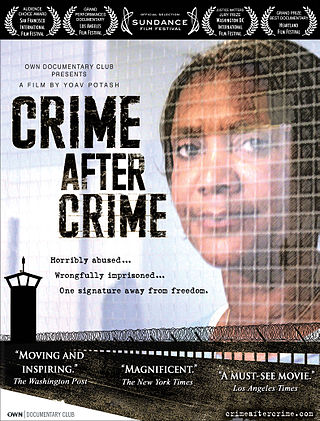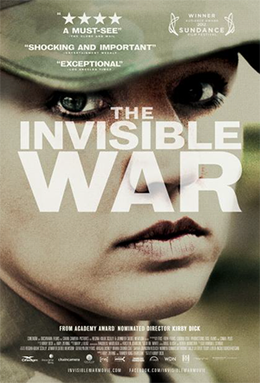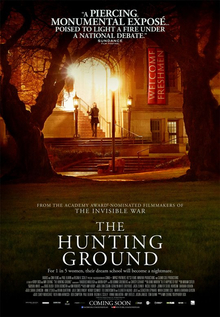Related Research Articles

Mukhtaran Bibi, now known as Mukhtār Mā'ī, is a Pakistani human rights activist from the village of Meerwala, located in the rural tehsil of Jatoi in the Muzaffargarh District of Punjab, Pakistan. In June 2002, Mā'ī was the victim of a gang-rape sanctioned by a tribal council of the local Mastoi Baloch clan, as a form of 'honour revenge'; the council ruling was a result of a dispute between the wealthier Mastoi Baloch and Mā'ī's Tatla clan.
Shazia Khalid is a medical doctor and advocate of women's human rights from Sui, Pakistan.

Pamela Yates is an American documentary filmmaker and human rights activist. She has directed films about war crimes, racism, and genocide in the United States and Latin America, often with emphasis on the legal responses.
Thomas Furneaux Lennon is a documentary filmmaker. He was born in Washington, D.C., graduated from Phillips Exeter Academy in 1968 and Yale University in 1973.
Michele Mitchell is an American filmmaker, journalist and author best known for her on-camera reporting for PBS and CNN Headline News and her documentaries Haiti: Where Did the Money Go? and The Uncondemned (2015).
Jonathan David Stack is an American documentary filmmaker. He is also a co-founder of World Vasectomy Day.

Women Make Movies is a non-profit feminist media arts organization based in New York City. Founded by Ariel Dougherty and Sheila Paige with Dolores Bargowski, WMM was first a feminist production collective that emerged from city-wide Women's Liberation meetings in September 1969. They produced four films by 1973. Dougherty and Paige incorporated the organization in March 1972 as a community based workshop to teach film to everyday women. A distribution service was also begun as an earned income program. In the mid-1970s a membership was created that screened and distributed members' work. In the early 1980s focus shifted to concentrate on distribution of independent films by and about women. WMM also provides production assistance to women filmmakers.
Ofra Bikel was an Israeli-American documentary filmmaker and television producer. For more than two decades she was a mainstay of the acclaimed PBS series Frontline producing over 25 award-winning documentaries, ranging from foreign affairs to critiques of the U.S. criminal justice system.

Crime After Crime is a 2011 award-winning documentary film directed by Yoav Potash about the case of Deborah Peagler, an incarcerated victim of domestic violence whose case was taken up by pro bono attorneys through The California Habeas Project.
Kainat Soomro is a Pakistani woman whose struggle to obtain justice for her gang rape at the age of 13 drew international attention. Kainat was steadfast in her determination to obtain justice against her alleged attackers.

Habiba Nosheen is an Investigative journalist. Her film Outlawed in Pakistan premiered at Sundance Film Festival in 2013 and was called "among the standouts" of Sundance by the Los Angeles Times. A longer version of the film aired on PBS Frontline. Nosheen's 2012 radio documentary, "What Happened at Dos Erres?" aired on This American Life and was called "a masterpiece of storytelling" by The New Yorker.

The Invisible War is a 2012 American documentary film written and directed by Kirby Dick and produced by Amy Ziering and Tanner King Barklow about sexual assault in the United States military. It premiered at the 2012 Sundance Film Festival, where it received the U.S. Documentary Audience Award. The film has been lauded by advocates, lawmakers, and journalists for its influence on government policies to reduce the prevalence of rape in the armed forces.
Punishment for rape in Pakistan under the Pakistani laws is either death penalty or imprisonment of between ten and twenty-five years. For cases related to gang rape, the punishment is either death penalty or life imprisonment. DNA test and other scientific evidence are used in prosecuting rape cases in Pakistan.
Lisa F. Jackson is an American documentary filmmaker, known most recently for her films, The Greatest Silence: Rape in the Congo (2007) and Sex Crimes Unit (2011), which aired on HBO in 2008 and 2011. Her work has earned awards including two Emmy awards and a Jury Prize from the Sundance Film Festival. She has screened her work and lectured at the Columbia University School of Journalism, Brandeis, Purdue, NYU, Yale, Notre Dame and Harvard University and was a visiting professor of documentary film at the School of Visual Arts in Manhattan.

Yoruba Richen is an American film director, screenwriter and producer. Her work has been featured on PBS, New York Times Op Doc, Frontline Digital, New York Magazine's website -The Cut, The Atlantic and Field of Vision. Her film The Green Book: Guide to Freedom was broadcast on the Smithsonian Channel to record audiences and was awarded the Henry Hampton Award for Excellence in Documentary Filmmaking.

The Hunting Ground is a 2015 American documentary film about the incidence of sexual assault on college campuses in the United States and the reported failure of college administrations to deal with it adequately. Written and directed by Kirby Dick and produced by Amy Ziering, it premiered at the 2015 Sundance Film Festival. The film was released on February 27, 2015, an edited version aired on CNN on November 22, 2015, and was released on DVD the week of December 1, 2015. It was released on Netflix in March 2016. Lady Gaga recorded an original song, "Til It Happens to You," for the film, which was nominated for the Academy Award for Best Original Song.
India's Daughter is a documentary film directed by Leslee Udwin and is part of the BBC's ongoing Storyville series. The film is based on the 2012 Delhi gang rape and murder of 22-year-old Jyoti Singh, aliased "Nirbhaya", who was a physiotherapy student. The documentary explores the events of the night of 16 December 2012, the protests which were sparked both nationally and internationally as a result of the assault, and the lives of the men before they committed the attack. The film is told through the use of reconstructed footage and interviews with those involved in the case, including the defence lawyers, psychiatrists, and one of the rapists.
After a sexual assault or rape, victims are often subjected to scrutiny and, in some cases, mistreatment. Victims undergo medical examinations and are interviewed by police. If there is a criminal trial, victims suffer a loss of privacy, and their credibility may be challenged. Victims may also become the target of slut-shaming, abuse, social stigmatization, sexual slurs and cyberbullying. These factors, contributing to a rape culture, are among some of the reasons that may contribute up to 80% of all rapes going unreported in the U.S, according to a 2016 study done by the U.S. Department of Justice.

A Thousand Cuts is a 2020 Philippine-American documentary film about Maria Ressa, the founder of the online news site Rappler. Directed by Ramona Diaz, it explores the conflicts between the press and the Filipino government under President Rodrigo Duterte.
Hemal Trivedi is an Indian documentary film director, editor and producer. She is best known for her work on the documentaries Shabeena's Quest, and Among the Believers.
References
- ↑ The version shown at the Sundance Film Festival ran for 40 minutes.
- 1 2 Khan, Azmat (24 May 2013). "Why Is It So Hard to Try A Rape Case in Pakistan?". Frontline.
- ↑ Jensen, Elizabeth (26 May 2013). "PBS Demands, and Gets, More Reporting in a Film". The New York Times.
- ↑ Taddonio, Patrice (24 April 2014). ""Outlawed in Pakistan" Wins Overseas Press Club Award". Inside FRONTLINE.
- ↑ "For justice: Kainat Soomro receives movie award". The Express Tribune. 11 March 2014.